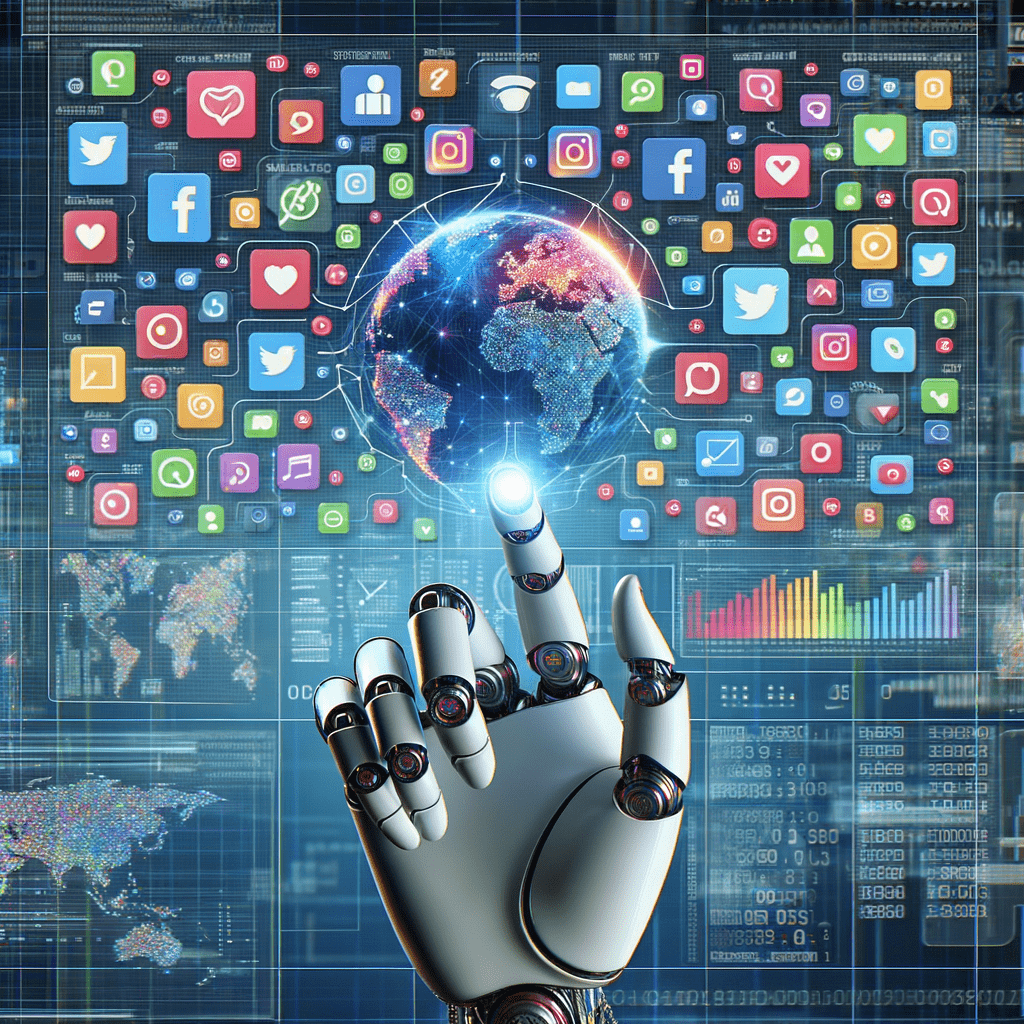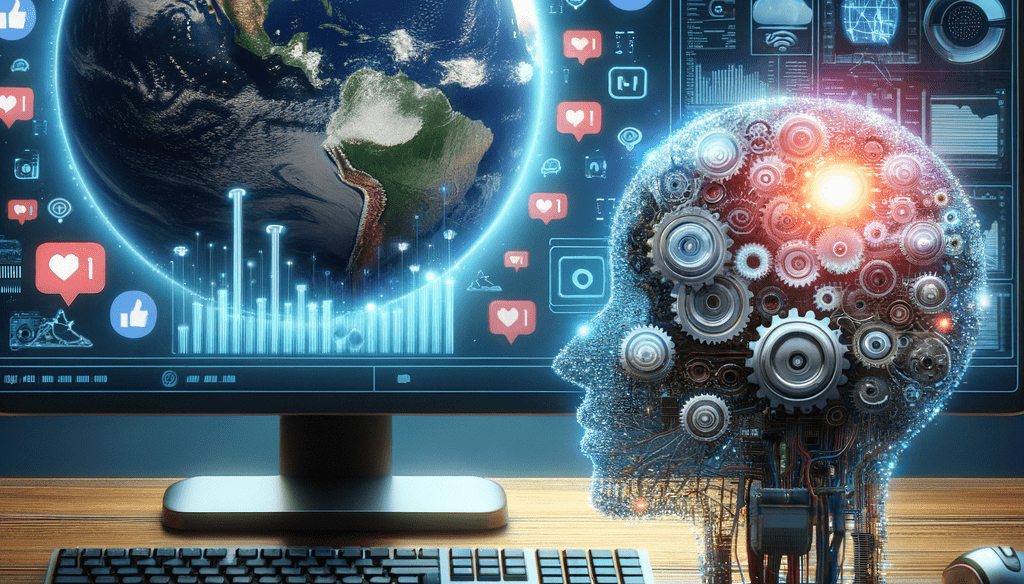Introduction
Artificial Intelligence (AI) is reshaping the landscape of social media by enhancing content personalization, improving engagement, and automating various tasks. From recommendation algorithms to chatbots, AI is playing a crucial role in transforming how users interact with digital platforms. This article explores the impact of AI on social media, its key applications, benefits, challenges, and future trends.
Applications of AI in Social Media
AI is deeply integrated into social media platforms, offering solutions that enhance user experience, content moderation, and business strategies. Some of the primary applications include:
- AI-Driven Content Recommendation
- Personalized Feeds: AI analyzes user behavior to deliver personalized content recommendations.
- Trending Topic Detection: AI identifies emerging trends by analyzing large volumes of posts and interactions.
- Automated Content Moderation
- Hate Speech and Misinformation Detection: AI detects and removes harmful or misleading content.
- Spam Filtering: AI prevents spam and fraudulent activities by analyzing posting patterns.
- AI-Powered Chatbots and Virtual Assistants
- Customer Support: AI chatbots handle user inquiries and provide instant responses.
- Social Media Engagement: AI-powered assistants interact with users, answering queries and providing recommendations.
- Sentiment Analysis and Social Listening
- Brand Monitoring: AI analyzes social media mentions to assess public sentiment about brands.
- Crisis Detection: AI identifies negative sentiment spikes, allowing businesses to respond promptly.
- AI in Social Media Marketing
- Automated Ad Targeting: AI optimizes ad placements based on user behavior and preferences.
- Content Generation: AI creates compelling posts, captions, and marketing copy.
Benefits of AI in Social Media
AI brings numerous advantages to social media platforms and businesses:
- Enhanced User Experience: AI-driven personalization improves engagement and satisfaction.
- Improved Efficiency: Automation of tasks saves time and reduces operational costs.
- Stronger Security: AI identifies and prevents malicious activities, enhancing platform safety.
- Better Marketing Strategies: AI-driven insights help businesses target audiences more effectively.
Challenges of AI in Social Media
Despite its benefits, AI implementation in social media presents challenges:
- Privacy Concerns: AI-driven data collection raises issues about user privacy and security.
- Algorithmic Bias: AI can unintentionally reinforce biases, leading to unfair content promotion.
- Misinformation Spread: AI-generated deepfakes and misleading content pose significant risks.
- Over-Reliance on Automation: Excessive AI use may reduce human oversight and engagement.

The Future of AI in Social Media
AI’s role in social media is expected to evolve with advancements in:
- Improved Content Authenticity Detection: AI tools to better detect and counter deepfakes.
- Voice and Video AI: AI-driven voice and video interactions will enhance social media experiences.
- Decentralized AI for Privacy Protection: AI solutions that prioritize user data privacy and security.
- More Ethical AI Practices: Platforms will focus on reducing biases and ensuring fair content distribution.
Artificial Intelligence is revolutionizing social media by optimizing content delivery, improving moderation, and enhancing user engagement. While AI offers numerous benefits, addressing challenges such as bias and privacy concerns is crucial for ethical and effective AI integration. As technology advances, AI will continue to shape the future of social media, making it more personalized, secure, and interactive.




